
BWFolsom/iStock/Getty Images
Muenster cheese originated in France, where its flavor ranges from mild to pungent, depending on how long it’s aged. American muenster is less likely to vary in flavor; it’s usually mild-flavored. Even though it has health benefits -- it contains protein, minerals for strong bones and vitamin B-12 -- all of the potential benefits must be balanced against the calories and saturated fat you’ll consume with the nutrients.
Watch Calories and Saturated Fat
With 103 calories in one slice, or 1 ounce, of muenster cheese, it’s easy to eat more than you realize if you’re not paying attention to portions. As long as the calories count as part of your total daily intake, and they’re not added on top of a normal daily diet, then an occasional serving can fit in your menu. However, you’ll need to watch the saturated fat in the foods you eat for the day. One slice of muenster has 8 grams of total fat, including 5 grams of saturated fat. This represents about one-third of an entire day’s saturated fat, according to the American Heart Association. Low-fat muenster has 76 calories and half the fat.
Basic Body Support
Proteins are essential to build and support your body. They provide resilience for bones and ensure your muscles work. They’re a source of energy when necessary and, as neurotransmitters, proteins keep your brain operating. They also form enzymes, hormones and antibodies. The proteins you eat are digested into amino acids, which are reassembled into the specific proteins each cell needs. Amino acids aren’t stored in your body, so it’s essential to get a regular supply through your diet. For women, that means consuming 46 grams daily, while men need 56 grams. You’ll get 7 grams from a 1-ounce serving of muenster cheese.
Bone-Building Minerals
Calcium isn’t the only mineral you need to build bones. Calcium binds with phosphorus to create a new substance called hydroxyapatite. Then hydroxyapatite attaches to strands of collagen, which is made from protein. The combination of collagen and minerals creates bones that have strength and resilience. Most of the calcium and phosphorus in your body is used to build bones, but they also contribute to metabolic processes outside your bones. Calcium helps maintain the activity of muscles and nerves, while phosphorus regulates the acidity of fluids in your body. One ounce of muenster supplies about 20 percent of your recommended daily intake of calcium and phosphorus.
Cardiovascular Health
Animal-based foods, including muenster cheese, are the primary natural sources of vitamin B-12. This vitamin keeps your cardiovascular system healthy through its role in the synthesis of red blood cells. It also converts an amino acid -- homocysteine -- into other beneficial substances, which reduces the amount of homocysteine in your bloodstream. High levels of homocysteine can damage your arteries and contribute to blood clots, according to FamilyDoctor.org. A 1-ounce serving of muenster cheese contains 0.4 micrograms of vitamin B-12, or 17 percent of your recommended dietary allowance.
Related Articles

Vitamins for Mental Alertness
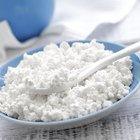
Benefits of Cottage Cheese
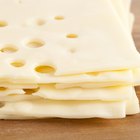
Nutrition in Swiss Vs. American Cheese

Whole vs. Low-Fat Buttermilk

The Nutritional Value of Norwegian ...

Nutrition Information on Blueberries
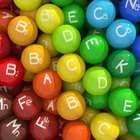
What Vitamins Help the Liver?
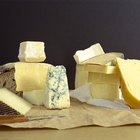
Nutritional Values of Cheese

Strontium-Rich Foods

Cappuccino Nutrition Information

How to Get Fit in 4 Weeks

Meat & Cheese Diet
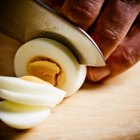
Egg Whites & Potassium
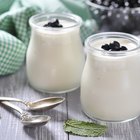
The Amount of Lactose in Yogurt

The Nutrition of 15-Bean Soup
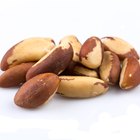
Selenium & Silica

Facts About Yoplait Yogurt
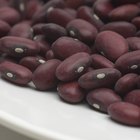
Red Kidney Beans Nutrition

What Are the Benefits of Great Northern ...

What Are the Health Benefits of White ...
References
- USDA Nutrient Database: Cheese, Muenster
- USDA Nutrient Database: Cheese, Muenster, Low Fat
- American Heart Association: Know Your Fats
- University of North Dakota: Protein
- Bone Health and Osteoporosis: A Report of the Surgeon General: Basics of Bone in Health and Disease
- Linus Pauling Institute: Phosphorus
- Linus Pauling Institute: Calcium
- FamilyDoctor.org: Coronary Artery Disease: High Homocysteine Level: How It Affects Your Blood Vessels
- Office of Dietary Supplements: Vitamin B12
Writer Bio
Sandi Busch received a Bachelor of Arts in psychology, then pursued training in nursing and nutrition. She taught families to plan and prepare special diets, worked as a therapeutic support specialist, and now writes about her favorite topics – nutrition, food, families and parenting – for hospitals and trade magazines.
Photo Credits
BWFolsom/iStock/Getty Images